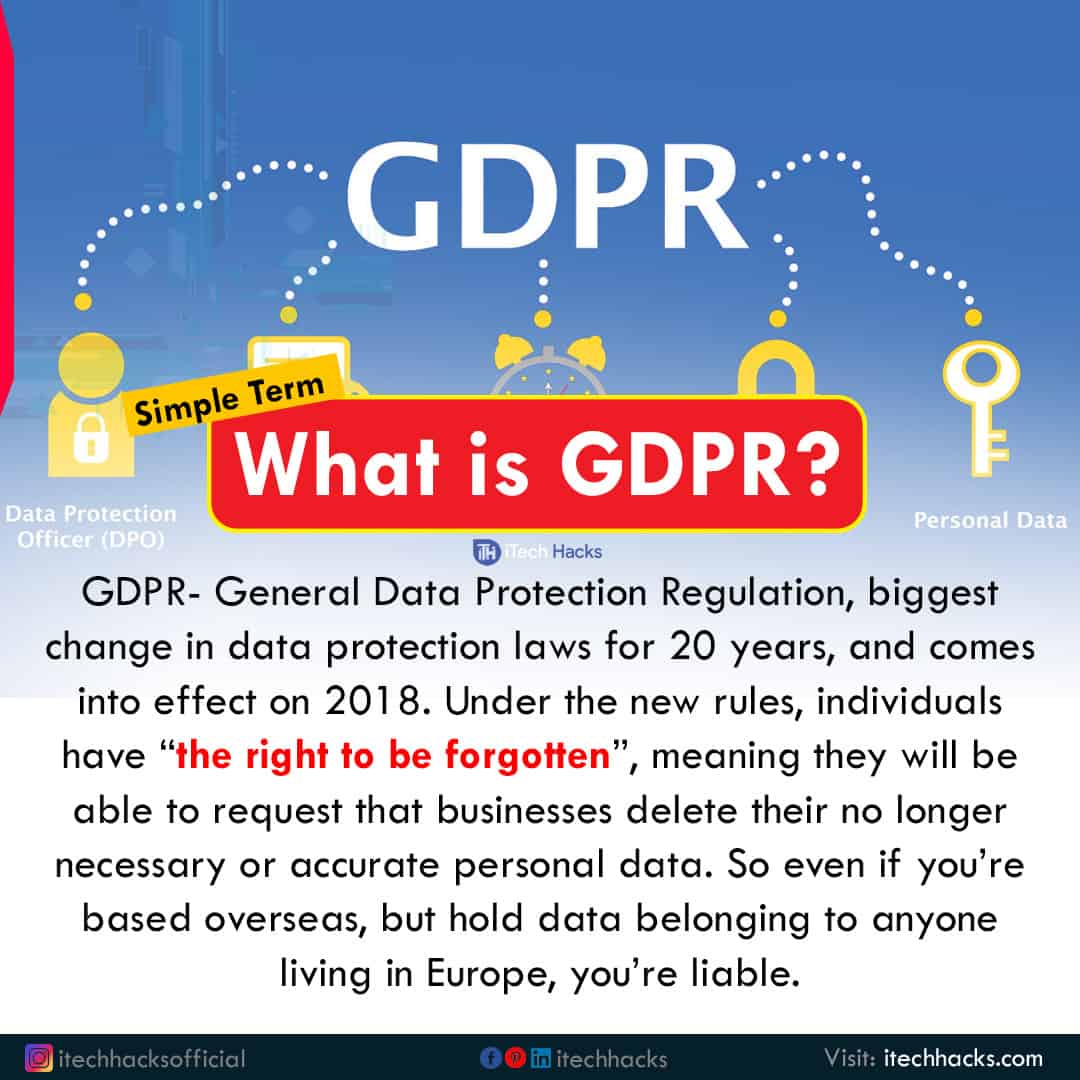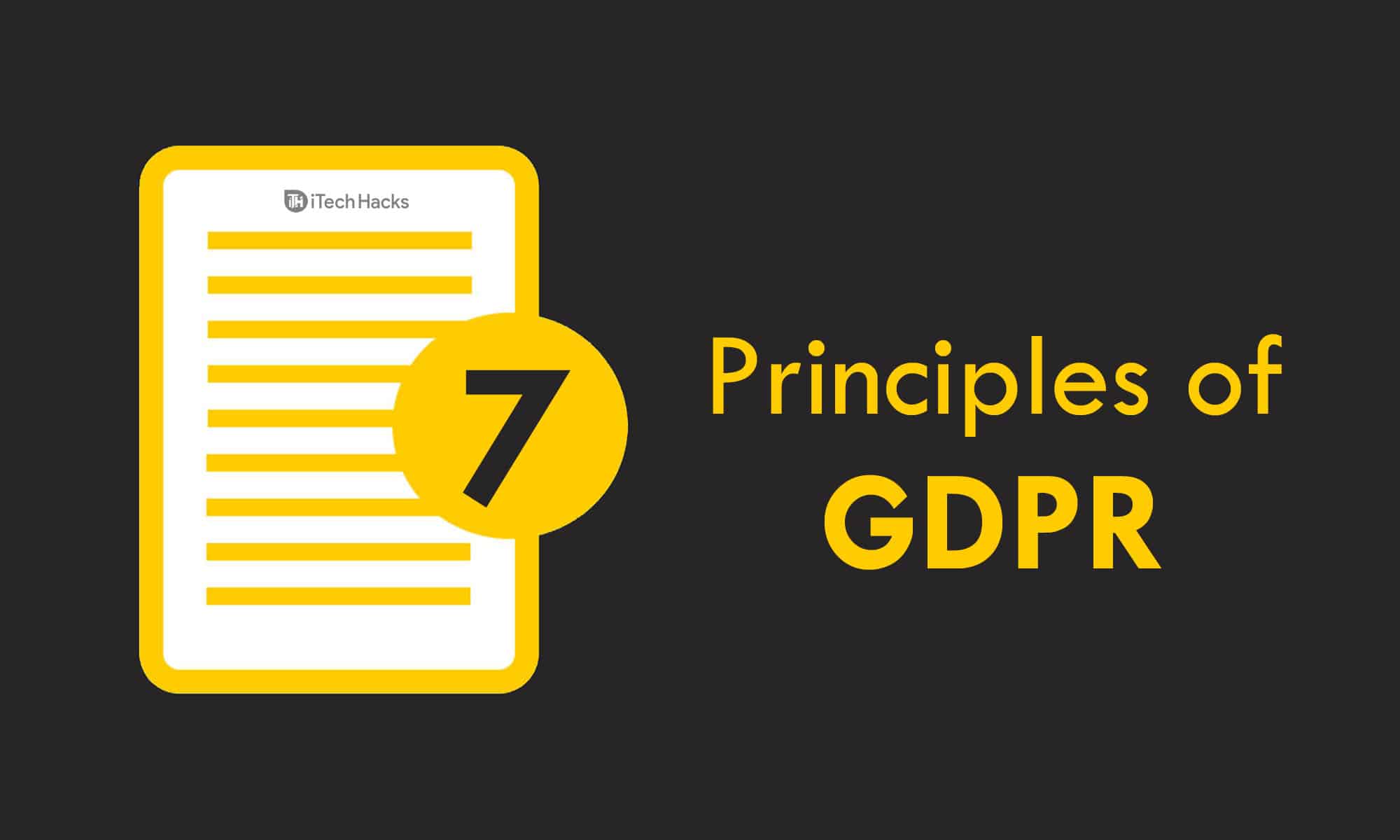- GDPR is crucial for businesses in the EU, with 7 core principles outlined to achieve compliance.
- The GDPR aims to give EU citizens control over personal data, including sensitive information.
- Compliance involves obtaining consent, breach notification, data access rights, the right to be forgotten, and more.
In today’s digital era, understanding the General Data Protection Regulation (GDPR) is imperative for businesses operating within or dealing with the European Union. This article delves into the seven core principles of GDPR, offering a clear and concise guide for achieving compliance.
What is GDPR?
The European Commission set out some of the plans for data protection across the EU i.e. European Union in order to make Europe ‘fit for the digital age’ and approximately four years later, the agreement was reached on how it will be enforced and what will be involved in it.
One of the reform’s key components is to introduce GDPR (General Data Protection Regulation).
This new framework of the EU is applied to the organizations in all the member-states and has implications for individuals and businesses across Europe and beyond.
The vice president of the Digital Single Market, Andrus Ansip said that the Digital Future of Europe can only be built on trust and continued that with solid common standards for data protection, the people could be sure that they are in control of their personal information. Andrus Ansip said it when the reforms were agreed in December of 2019.

If we move to the deep of GDPR then we will get to know that it is a new set of rules which is designed to give EU ( European Union ) citizens more control over their personal data, and it is aimed to simplify the regulatory, environment for any business. therefore, from the digital economy both the businesses and citizens in the EU can fully be benefitted.
READ MORE: Difference Between Invoice and Quote?
The personal data under the GDPR
You might be wondering about the types of personal data that can be stored under the General Data Protection Regulation (GDPR). This section will clarify that. The types of data considered personal under current legislation include photographs, addresses, and names. Importantly, it also encompasses sensitive personal data such as biometric and genetic data, which can be processed to identify an individual.
Who does GDPR apply?
The General Data Protection Regulation (GDPR) applies to any organization operating within the European Union (EU). Additionally, it extends to organizations outside the EU that offer goods and services to businesses or customers in the Union. This means that nearly every major corporation worldwide needs a GDPR compliance strategy.
The legislation identifies two different types of data handlers: Controllers and Processors. The definitions of each are laid out in Article 4 of the General Data Protection Regulation.
READ MORE: Amazon Package Stolen? 3 Ways to Get Your Refund
Requirements to be a GDPR compliant

The world’s largest companies are currently grappling with GDPR compliance, a challenge that is likely to continue up to and beyond the deadline of May 25th, 2018. Let’s simplify GDPR compliance to its basic elements, although there is still much to implement to ensure alignment. Key considerations include obtaining consent, timely breach notification, the right to data access, the right to be forgotten, data portability, privacy by design, and potential data protection. We will discuss some of these aspects:
1. Obtaining Consent.
your consent terms must be clear and the consents must be given as well as freely withdrawn at any time.
2. Timely Breach Notification.
The customers and any data controllers both have to report the data breach within 72 hours if any security breach occurs if the company is large enough of requiring a GDPR data controller and if it fails to report breaches within these timeframes then it will lead to fines.
3. Right to Data Access.
If the users are requesting their existing data profiles then the company must be able to serve the users with a fully described and detailed and free electronics copies of data you have collected about the users, and remember that this report must include the various ways the company is using the user’s information.
4. Right to be Forgotten.
It is also called the right to data deletion. If the original purpose or use of the company is completed then the customers have the full right to request the company to totaly delete the data.
7 Principles of GDPR
- Lawfulness, fairness, and transparency
- Data minimization
- Purpose limitation
- Accuracy
- Storage limitations
- Honesty and confidentiality
- Accountability
READ MORE: SS7 Hack Attack: How it Works? Detailed Explanation
Conclusion:
So, these are some of the simple definitions requested by itechhacks readers on GDPR and 7 Principles of GDPR. We hope this article was helpful to you. As technology is getting more and more advanced these days. We are experiencing its presence in the education system too. Online learning is beneficial for each and every kid living in this era. Thanks for reading! Do share our articles with your friends and family. Cheers!










